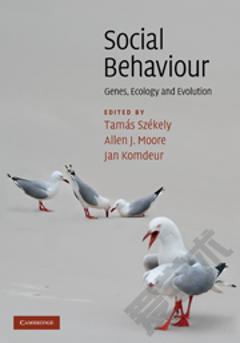Social Behavior: Evolutionary Pathways, Environmental Influences and Impairments
Social behavior has broad implications for the survival and reproduction of an organism. Social behaviors often reflect rather complex mechanisms. Through a variety of interactions, individuals establish social relationships (dominant/subordinate, friend/foe, potential mate/mating partner, kin/non-kin). In some cases this may require aggressive physical altercations and more passive interactions such as ritualistic competitions, behavioral sequences, behavioral postures, and other forms of signaling. Social interactions are dependent on context and environmental influences. Understanding the functional significance and mechanisms driving various social behaviors will require empirical comparative studies with careful consideration of environmental factors. This book provides information on the idea of social behavior in different animals being affected by evolution and the environment. (Imprint: Nova)
{{comment.content}}








 京公网安备 11010802027623号
京公网安备 11010802027623号